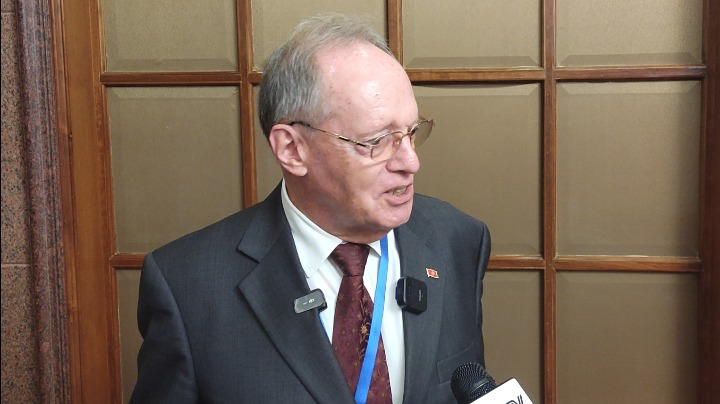Published: January 28,2024

China’s accomplishments in safeguarding human rights are truly noteworthy, and the citizens have ample reasons to take pride in these commendable achievements, said Peter Hediger, a Swiss sinologist, historian and international security policy expert.
He made the remarks at an event titled “Human Rights and Chinese Modernization” on Wednesday in Geneva. Zhu Hongli, deputy secretary general of The China Society for Human Rights Studies, noted that the respect for and protection of human rights are integral aspects of modernization, as China has stayed committed to modernization and progressed through promoting human rights. In recent years, China’s legislative, executive and judicial organs have adopted a series of measures to strengthen the judicial protection of women’s rights, said Dai Ruijun, senior fellow of Institute of International Law of Chinese Academy of Social Sciences. The comprehensive revision of the Law on the Protection of Women’s Rights and Interests in 2022, she said, has added a new chapter on “remedial measures,” and established a number of new systems to deal with the lack of effectiveness of rights remedies.
Remina Xiaokaiti, an associate professor of Xinjiang University, said that human rights in Xinjiang have significantly advanced as part of China’s modernization efforts. The remarkable economic and social progress in Xinjiang has improved people’s living standards and the sense of fulfillment, happiness, and security among all ethnic groups, she said, adding the rights to employment and education for all ethnic groups have been effectively safeguarded. Xiao Wu, an associate professor from Southwest University of Political Science and Law, said that China has been enhancing its governance of Xizang in accordance with legal principles, establishing a strong basis for the rule of law to ensure the long-term stability and high-quality development of Xizang.
Suolangzhuoma, an assistant researcher of China Tibetology Research Center, highlighted the collective efforts of policy support, financial investment, education and training initiatives, and international exchanges, and the active engagement of local residents and relevant institutions, which have collaboratively propelled the development of Xizang’s cultural traditions. According to Suolangzhuoma, these measures have played a crucial role in effectively preserving Xizang’s distinctive cultural heritage, ensuring its continued inheritance, and facilitating its ongoing advancement.
Xinhua
 Africa -China Review Africa -China Cooperation and Transformation
Africa -China Review Africa -China Cooperation and Transformation
